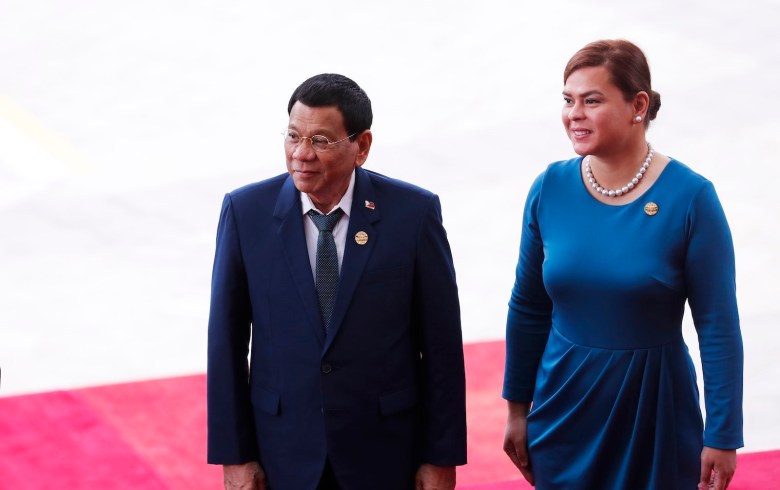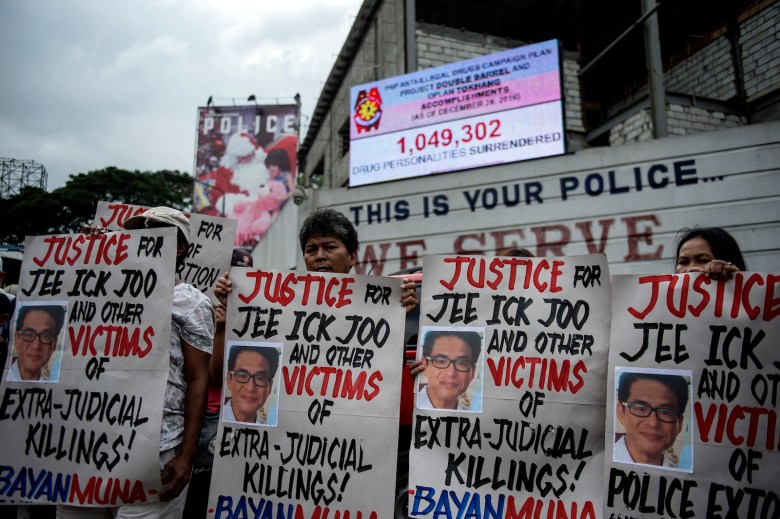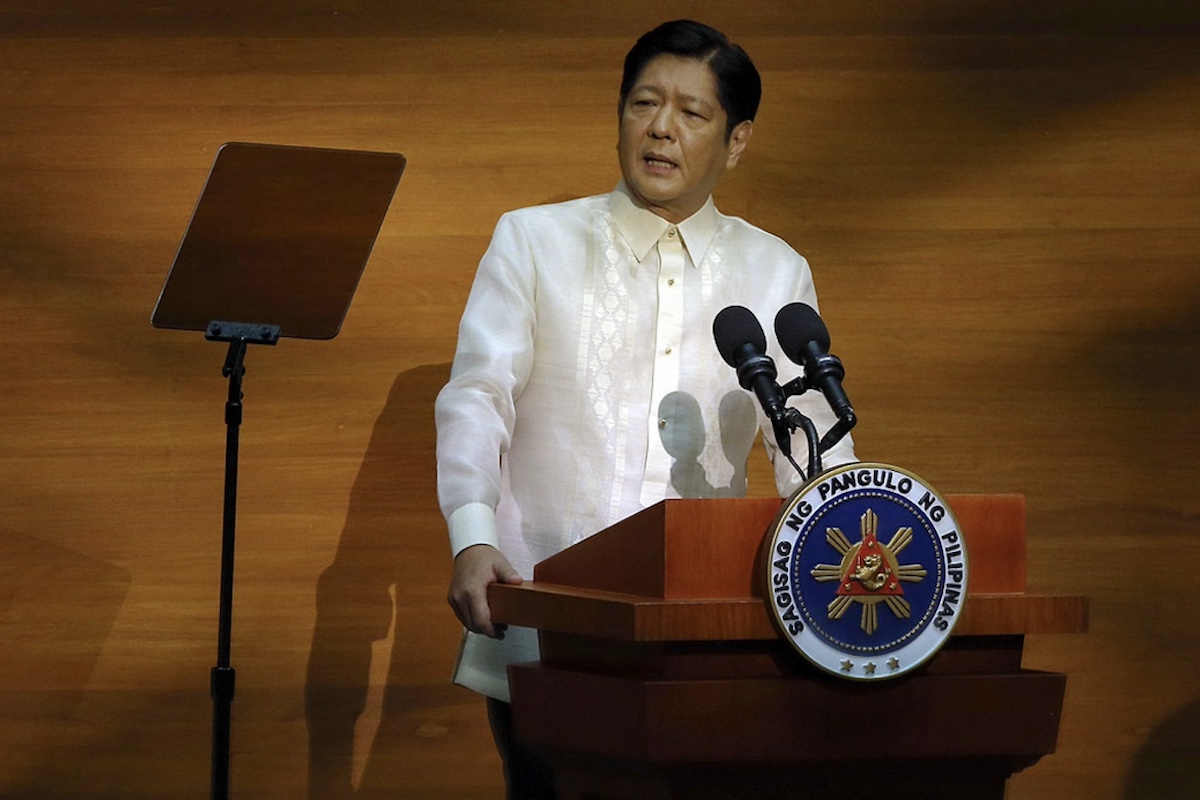MANILA – Philippine President Ferdinand Marcos Jr kickstarted his third, and arguably most consequential, State of the Nation Address (SONA) this week with a clear sense of urgency.
Although still enjoying majority support in authoritative surveys, the Filipino leader has suffered declining approval ratings due to perceived weakness in handling economic issues, even as the Philippines posted the fastest growth rate in the region last year.
According to Pulse Asia’s third quarter survey, the Marcos Jr administration had a net negative 71% approval rating in handling inflation, which has consistently topped the “most urgent” list of voter concerns.
Only 5% of respondents approved of his handling of inflation, which has been hounding the Philippines over the past two years. Though overall rates are in single digits and well below troubled emerging markets such as Argentina and Turkey, even minimal increases in the prices of basic goods tend to hit hard the large majority of Filipinos who live near the poverty line.
In particular, prices of staple goods like rice have picked up in recent years. This has been particularly damaging for Marcos Jr, who as a presidential candidate had promised to halve the prices of basic staple foods and bring about a new era of economic prosperity.
The average market price of a single kilogram of rice is almost three times higher than his promised rate back in 2022. If anything, the Marcos Jr administration has also performed poorly on other top voter concerns, including poverty alleviation (net -34%); wage increases (net -15%) and hunger alleviation (net -9%), although he scored a barely positive (net +2 percent) on job creation amid rapid gross domestic product (GDP) growth rates in recent years.
Just as concerning, however, is Marcos Jr’s declining trust rating, which reached a low of 52% – well below historic trends, especially under former presidents such as Rodrigo Duterte and Benigno Aquino, who had enjoyed super-majority support at this phase in their tenures.
In fact, the president ranked below both Senate President Francis Escudero (69%) and, crucially, Vice President Sara Duterte (71%), who boycotted this year’s SONA following her resignation from Marcos Jr’s cabinet.

If anything, Duterte has positioned herself as the de facto leader of the main opposition at next year’s midterm elections. No wonder then Marcos Jr wasted no time to rally the national elite and corral a new coalition ahead of his electoral showdown with his former allies, the Dutertes.
“The hard lesson of this last year has made it very clear that whatever current data proudly bannering our country as among the best-performing in Asia, means nothing to a Filipino, who is confronted by the price of rice at 45 to 65 pesos per kilo,” Marcos Jr declared in his annual speech before the joint legislature, where he set his priorities for his third year in office.
“Because of compelling emergency reasons such as illegal price manipulation by hoarders and smuggling, we were constrained to temporarily implement mandated price ceilings on rice,” he added, emphasizing that external factors have impacted the high prices of basic goods.
To reassure voters, he claimed that his government has seized 2.7 billion pesos (US$46.2 million) worth of smuggled agriculture and fishery products, which would be redistributed to the poorest communities.
As the former acting agriculture secretary, Marcos Jr also claimed that his government will construct 1,200 kilometers of farm-to-market roads by the end of the year to ease transportation costs and drive down overall prices of good commodities.
To enhance agricultural productivity, he also claimed that his government would irrigate about 45,000 hectares of new agricultural land this year, while restoring irrigation to almost 39,000 hectares of land.
The president also mentioned climate change and the deleterious impact of an extended and more ferocious El Niño drought this year, which adversely affected domestic agricultural production.
Unless the Marcos Jr administration dramatically increases the supply of subsidized rice, it’s unlikely to win back approval from estranged voters at the lower rungs of the socio-economic ladder. Meanwhile, the country is also paying the price of overdependence on imported food commodities due to underinvestment in domestic production.
Marcos Jr also recognized structural obstacles to economic security and the inflow of foreign direct investment, which was down by almost a third on a year-on-year basis in April. Accordingly, he promised to review existing laws, which disastrously privatized critical sectors such as power and electricity production.
“We are revisiting and thoroughly examining the EPIRA [Electric Power Industry Reform Act] to determine if it is still suitable for our current situation or if it is time to amend it. I am asking Congress to work together on this for the sake of the Filipino people,” Marcos Jr declared, referring to the 2001 law that allowed private suppliers to effectively dictate power rates in the country, which are among the highest in the Asia-Pacific region.
Marcos vowed to raise the issue among the 28 priority measures identified by the Legislative-Executive Development Advisory Council (LEDA) in the coming months. Given the Filipino president’s personal ties to and reliance on the advice of the country’s oligarchs, however, many doubt that he will enact any dramatic reforms to critical infrastructure.
But he could push for competitive power and electricity rates in special economic zones to attract more manufacturing investments, which are crucial to the Philippines’ long-term development and more inclusive growth.
Meanwhile, Marcos Jr also tried to distinguish himself from the draconian and authoritarian policies of his immediate predecessor, Rodrigo Duterte.
“Extermination was never one of them,’’ he said, referring to his own less-lethal anti-drug campaign. “The drug conviction rate is at a high of 79%. Together with this, we welcome the report that the number of drug-affected barangays in our country has been reduced by 32%,” Marcos added.
According to the Filipino president, his government conducted 71,000 anti-drug operations, which have led to the arrest of almost 100,000 drug personalities as well as the seizure of close to $800 million (44 billion pesos) worth of illegal drugs. Human rights groups, however, have claimed that extrajudicial killings remain a serious concern.
From June 30, 2023 to July 1 this year, as many as 360 deaths in anti-illegal drug operations were recorded by the Philippine National Police (PNP), the Philippine Drug Enforcement Agency (PDEA) and the Armed Forces of the Philippines (AFP).

“Even if we grant that it is bloodless – which it is definitely not – the measure of success should not only be the absence of violence but how many have been accountable,’’ Carlos Conde, a top human rights expert, told the media.
In another major departure from his predecessor, Marcos Jr announced an immediate ban on Chinese-run online casinos, or so-called Philippine Offshore Gaming Operators (POGOs), a key and controversial legacy of the Duterte presidency.
“Effective today, all POGOs are banned,’’ Marcos Jr declared, emphasizing growing concerns over “financial scamming, money laundering, prostitution, human trafficking, kidnapping, brutal torture, even murder, grave abuse and disrespect to our system of laws must stop.”
“I hereby instruct Pagcor [Philippine Amusement and Gaming Corporation] to wind down and cease the operations of POGOs by the end of the year,’’ he said.
To avoid any economic disruptions, Marcos Jr reassured that “the DOLE (Department of Labor and Employment), in coordination with our economic managers, shall use the time between now and then to find new jobs for our countrymen who will be displaced.”
The decision has been enthusiastically welcomed by the business community, especially the influential Makati Business Club and the Financial Executives Institute of the Philippines and the Management Association of the Philippines. Both have emphasized the deleterious impact of Chinese online casinos, which are notorious for tax evasion, criminal activities and a meager contribution of only 0.1% of Philippine GDP.
According to Philippine authorities, 55% of 31 cases of kidnapping in 2022 were POGO-related, underscoring the grave threat posed by online casinos, which enjoyed a heyday under the Duterte presidency. In perhaps his most consequential and popular departure from Duterte’s policies, Marcos centered on the South China Sea disputes.
“The Philippines cannot yield. The Philippines cannot waver,” he declared in the proudest highlight of his annual address. “We continuously try to find ways to de-escalate tensions in the contested areas without counterparts, without compromising our position and principles,” he added, emphasizing the need for both a firm stance and proactive diplomacy.
In many ways, his third SONA set the tone for his coalition’s impending clash with the Dutertes at next year’s midterm elections, which will serve as a de facto referendum on the two clashing political dynasties.
Follow Richard Javad Heydarian on X at @Richeydarian


